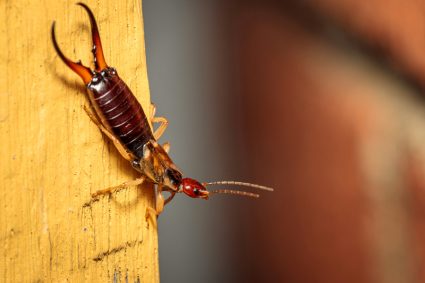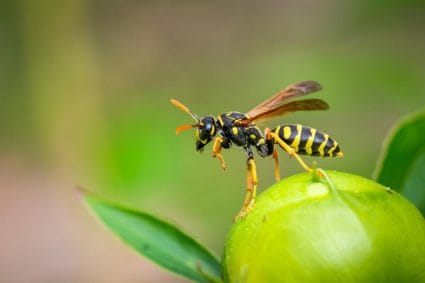
Rabbits may seem cute and cuddly, but they can wreak havoc on your garden. These critters have a voracious appetite and can quickly decimate your flowers, vegetables, and plants. Fortunately, there are several effective and humane ways to deter rabbits from your garden. This comprehensive guide will provide you with everything you need to know about how to deter rabbits.
To deter rabbits from your garden, consider installing a fence or netting, using commercial or homemade repellents, and planting rabbit-resistant plants. Other effective strategies include using scare tactics like motion-activated sprinklers, removing hiding places, and encouraging natural predators. Always be sure to confirm rabbit activity before implementing these methods.
Identifying Rabbit Presence
Before implementing any deterrence methods, it’s essential to confirm that rabbits are indeed the culprits behind the damage in your garden. Signs of rabbit activity include pea-sized droppings, clean-cut damage to plants, gnawed or stripped bark at the base of young trees, and foliage grazed up to a height of 50cm (20in). Rabbits are especially fond of lettuce, beans, broccoli, gazanias, marigolds, pansies, and petunias.
Effective Non-Harmful Rabbit Deterrents
Fencing
One of the most effective ways to keep rabbits out of your garden is by installing a fence or netting with a fine mesh. The fence should be at least 2 feet high and buried at least 6 inches below the ground level to prevent rabbits from digging under it. Chicken wire with 1-inch mesh or smaller is recommended.
Repellents
There are several commercial and homemade repellents that can deter rabbits. Commercial products like Bobbex Repellents, Liquid Fence Deer & Rabbit Repellent, and Nature’s MACE Rabbit Repellent are environmentally friendly and safe for all wildlife. Homemade repellents made from garlic, red peppers, and dish soap can also be effective.
Rabbit-Resistant Plants
Rabbits tend to avoid plants with strong scents or prickly leaves. Planting rabbit-resistant plants like peonies, sweet alyssum, ageratum, lantana, and lavender can help deter rabbits from entering your garden.
Scare Tactics
Motion-activated sprinklers can surprise rabbits and send them running away from your garden. However, rabbits often become accustomed to scare tactics over time, so it’s essential to combine this method with other deterrent strategies.
Removing Hiding Places
Eliminating hiding spots such as brush piles and tall grass around your garden can make the area less appealing to rabbits.
Encouraging Natural Predators
Allowing pet dogs or cats to roam freely in your garden can help keep rabbits away, as the scent of a predator can serve as a deterrent. You can also encourage natural predators of rabbits, such as foxes, weasels, and hawks, to take up residence in your yard.
Modifying Garden Layout
Modifying your garden layout can also deter rabbits. Plant rabbit-repellent plants, remove hiding places, and install physical barriers like fencing or netting. You can also use repellents and encourage natural predators to keep rabbits at bay.
Common Mistakes
Avoid common mistakes such as relying solely on repellents, using ineffective scare tactics, and not starting early enough. Addressing a rabbit problem in your garden early on is crucial before they establish your outdoor space as a desirable location.
Conclusion
Rabbits can be a nuisance to gardeners, but with the right strategies, you can effectively deter these critters. Remember to regularly inspect your garden for signs of rabbit activity and damage, and adjust your deterrent methods as needed. With patience and persistence, you can protect your garden from rabbits and enjoy a bountiful harvest.
Frequently Asked Questions
How often should I apply commercial rabbit repellents?
Commercial rabbit repellents should be applied as per the instructions on the product label. Typically, they should be reapplied every 30 to 90 days, and after heavy rains.
Are homemade repellents safe for other garden wildlife?
Yes, homemade repellents made from natural ingredients like garlic and red pepper are generally safe for other wildlife. However, always use them sparingly to avoid potentially harming beneficial insects.
What time of day are rabbits most active?
Rabbits are crepuscular, which means they are most active during dawn and dusk. This is when you’re likely to see them foraging in your garden.
Can I use ultrasonic devices to deter rabbits?
Ultrasonic devices are marketed as a non-toxic way to deter rabbits. However, the effectiveness of these devices is disputed, and some studies have shown that they have little to no effect on deterring rabbits.
Are there any plants that rabbits absolutely won’t eat?
While there are plants that rabbits tend to avoid, such as those with strong scents or prickly leaves, a hungry rabbit in the absence of preferred food sources may eat almost any plant. However, some plants such as foxgloves, monkshood, and oleander are poisonous to rabbits.











